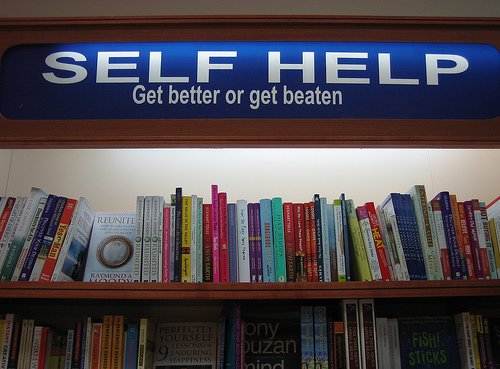
“If I back off and mind my own business, this means I don’t care.”
I find this a recurring theme in the lives of many people, especially about their loved ones.
Because of what I do for a living, I’m exposed to it more than most. Probably about half of the people who solicit professional help from me are doing so on behalf of some significant other in their life — son, daughter, sibling, spouse, close friend, whatever.
My first question usually is, “Does so-and-so want my help?” The answer usually boils down to: “Well, no, but I was hoping you could somehow intervene and …”
All of this stems from a single, but very significant error: The false belief that you can change another’s thinking, or do a person’s thinking for him (or her).
In the abstract, nearly everyone will acknowledge, “I know I can’t think for another person. I cannot get into their mind, their body, and get the brain operating and then follow through with specific actions.” It can be hard enough to do this for oneself; how in the world can you expect to do it for another?
Yet this is precisely the type of erroneous thinking implied by the statement, “I’ve got to get Mary to do such-and-such,” or “Somebody–somehow–has got to get Joe to change his ways.”
This may be the basic issue underlying nearly everything you find in self-help books.
“Men Who Hate Women and the Women Who Love Them.” The cause? A false belief by some women that love can change a man from the person he is (even a lousy person). Wrong. Only the man himself can do this. In fact, unconditional love will only worsen the problem.
“Codependent No More.” The cause of codependence? The book will tell you: Trying to change others who don’t wish to change (e.g., their substance abuse), while in the process shielding them from the consequences of their errors.
“The Seven Habits of Highly Effective People.” Basically, to be effective in life you have to appreciate the power of choice. When the power of choice is applied to others, you hold them responsible for the consequences of their own ideas and actions; and this frees you up to do the same for yourself. You don’t waste time trying to change others; instead, you change and “grow” yourself.
“Letting Go.” [A theme in many self-help book titles] It’s not trying to control your own destiny that’s so hard. Sure, it’s a lifelong challenge, but it’s largely doable. But trying to control others, or wishing you could, is what depletes your energy, marginalizes your mind and eventually undercuts your body’s very health. Once you grasp this, you won’t need a book telling you how to let go. Even forgiveness will not be a major issue. There’s little point being angry at somebody (at least forever) if you fully grasp and finally accept that their actions and choices were never yours to influence. You don’t have to forgive, if you don’t want to, but you don’t need to dwell on another’s wrongdoing, either, because it never was under your control.
There are scores of self-help books which tell you, “Stop trying to change other people.” Yet many people continue in the false belief that they can, and they should.
They do so because they feel that the only alternative is not caring. If I tell someone, “Your twenty-nine-year-old son Johnny isn’t going to change unless or until he wants to do so. Concentrate on yourself,” then 9 out of 10 people will reply, “Does that mean I should stop caring?”
Who said anything about not caring? Caring refers to an emotion; caring refers to mental or intellectual cognizance given to someone or something important to you.
But caring for someone won’t make them do what you think they should do. Your caring cannot change another’s mind. Rational persuasion can certainly make a difference, but only if the person is open to persuasion on a particular subject. What people are after in these kinds of situations is something that will transcend persuasion. It doesn’t exist.
The sooner you accept this, the sooner your problems will disappear. Instead of fretting and worrying and fuming over a loved one who won’t change his actions, you can focus your energies on just about anything else you wish. The person you’re worrying and fretting about will go on his or her way, regardless, so you might as well live your own life.
Be sure to “friend” Dr. Hurd on Facebook. Search under “Michael Hurd” (Rehoboth Beach DE). Get up-to-the-minute postings, recommended articles and links, and engage in back-and-forth discussion with Dr. Hurd on topics of interest.
